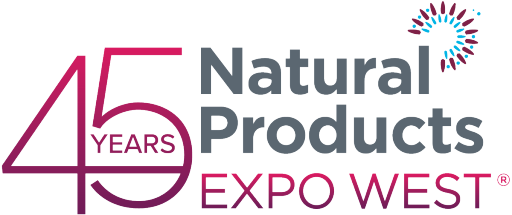Introducing our trailblazer of the month, Joe Dickson, a seasoned leader with over two decades dedicated to setting high standards that foster consumer trust in brands and products. As the Co-Founder and Head of Standards at Merryfield, he drives initiatives to reward natural and organic brands meeting rigorous criteria. Previously, Joe led quality standards efforts at Whole Foods Market for 20 years, culminating in his role as Global Director of Quality Standards. He advises various stakeholders on standards, sustainability, and communication strategies, and has served on the boards of The Non-GMO Project, USDA National Organic Standards Board, and others.
What are the most common misconceptions people have about our industry, and how would you debunk them?
One of the worst is the misconception that we’re a bunch of anti-science luddites. I’ve seen shades of this perception over my entire career, in my work advocating for natural medicines, GMO transparency, and organic farming practices, coming from big pharma, the dietetic establishment and the biotech lobby, as the belief that our industry is willing and choosing to ignore science in favor of unfounded approaches.
My concerns with these critiques are two-fold:
- First, there are deep pools of indigenous, native and traditional knowledge based on millennia of experimentation and experience. So much of this knowledge has been cast aside by modern medicine, and clinical validation favors large pharmaceutical companies with the resources to fund trials. That’s what drew me to Radicle’s critical work to democratize access to clinical trials and provide validation for natural medicines that are truly powerful.
- Second, history is littered with moments where western science failed to account for deeply complex dynamics and deemed an ingredient, chemical or practice “safe” when it was anything but. It’s human nature to overestimate the power of our own cognition – and don’t get me wrong, it’s powerful – but we also deemphasize our biases, subjectivities, and blind spots. Money, ego and hubris have deeply driven scientific hegemony, up to this very moment, and we need to take its offerings with a grain or two of (Himalayan pink sea) salt. I am an avowed proponent of epistemic humility – the belief that our knowledge is always provisional and incomplete, and that overconfidence is one of the most dangerous vices of scientific modernism and western medicine.
Can you share a memorable ‘aha’ moment from your career that changed the way you approach work?
When I was in my early 20s, shortly after I’d moved to Austin to join the Global Quality Standards Team at Whole Foods Market, I was diagnosed with Crohn’s Disease. My doctor, one of the most revered gastroenterologists in the area, told me that diet and supplements had absolutely nothing to do with the course of the debilitating and demeaning autoimmune disease, and that the best course of treatment was a series of expensive and risky biologic IV drugs. I followed that advice for years, being given higher and higher doses of drugs while painful symptoms always crept in around the edges of the latest treatment.
Only when I reached rock bottom did I meet a truly humble, big-hearted and brilliant doctor, open to non-western approaches, who worked alongside me to develop a strategy to deal with the disease through diet, plant medicines, herbal supplements and meditation. Today I’m in remission from the disease, despite western medicine’s continued position that diet and herbal approaches have no clinical relevance. I know that my disease was the product of a complex and dynamic convergence of factors we don’t fully understand, and the overconfidence and cockiness of my first doctor is unfortunately the posture of most of the medical community.
This experience still drives me to practice deep openness to indigenous and traditional approaches to health and healing, and while I still have abiding respect for modern science, it’s critical to acknowledge its limitations and biases, particularly around medical and nutritional knowledge.

What do you think is the key to building authentic customer engagement and long term trust?
Vulnerability and humility. Consumers will believe in brands that show authenticity through real and compelling human stories. People are becoming increasingly turned off by brands and influencers that claim to represent the One. True. Way. to solve a problem, and looking to brands and founders that connect with them on a human level, share their messy and real journey, and provide credible and transparent information about the value and power of their product. Companies are not people, but their founders and leaders are, and fostering real human connection is irreplaceable.


